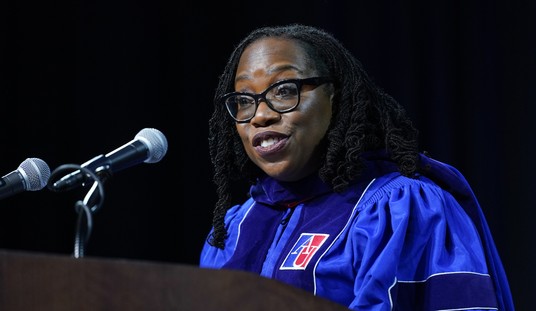Rep. Michele Bachmann (R-MN) got approval from the House to form a Tea Party Caucus, an official and voluntary organization within Congress. The TPC will join other special-interest caucuses like the Congressional Black Caucus, the Hispanic Caucus, and the Progressive Caucus, which mostly overlaps the previous two examples. Unlike the other caucuses, Bachmann intends to use the TPC to give a voice to ordinary Americans who feel cut out of the wheeling and dealing on Capitol Hill:
The idea is for the caucus to bring in “real people from various walks of life” to speak to its members about issues resonating within the Tea Party movement. “Usually we invite experts in,” Bachmann said of other caucuses in the House. “Well, these are experts in just being regular Americans,” she said.
The caucus is quickly evolving: Bachmann filed paperwork at end of last week to form the group, it was approved by House administration Monday, and now, the Minnesota congressman is out recruiting members for Wednesday’s inaugural meeting.
Bachmann was en route by air to Washington when the caucus was approved. “When I flew in, I was handing out invites to members of Congress to invite them to come to our first Tea Party Caucus tomorrow, and it’s all been very positive.”
I can hear the pushback now: Is Bachmann saying that progressives aren’t “regular Americans”? Where’s Journolist when we need it? No, that’s not what she’s saying, of course. The Tea Party movement started because of the massive disconnect between Congress and the people, a disconnect that hit critical mass when Democrats spent nine months taking over the American health-care system while most Americans not only opposed the effort but also wondered why Congress wasn’t addressing the real priorities: jobs and the economy. Instead, as Americans not in DC boggled at the size of the debt run up by the 111th Congress, Democrats passed Pay-Go only to promptly and repeatedly ignore it.
The sad part is that the House is supposed to be the people’s branch of government. Instead, it has become a den for a myriad of special interests. Want to guess how many caucuses there actually are within the House? Kathryn Jean Lopez links to the list of active caucuses, which appears interminable. Some of the more memorable caucuses are:
- African Great Lakes Caucus
- Algae Energy Caucus
- Bipartisan Congressional Refugee Caucus (for refugees from Congress?)
- Caucus for Congressional World Bank Dialogue
- Community College Caucus (wouldn’t that be a community issue?)
- Congressional Apparel Manufacturing and Fashion Business Caucus
- Congressional Bike Caucus
- Congressional Bourbon Caucus
- Congressional Caucus on California High-Speed Rail (why would this be a federal issue?)
- Congressional Caucus on Distracted Driving Awareness
And so on. The list is almost endless, and one would have to consult with the Bourbon Caucus to alleviate the headache that investigating this produces.
Bachmann makes one point about the TPC and its relation to GOP leadership, which is that it’s not designed to oppose or undermine it:
“No, I don’t see it that way,” Bachmann, of Minnesota, told The Daily Caller when asked if she envisioned the caucus offering a conservative counterpoint to the GOP establishment. “I think it’s really just complementary. … Usually the purposes of the caucuses are to promote an idea or issue — whether it’s the shellfish caucus, the potato caucus, the missile defense caucus. It’s members of Congress who are interested in an idea and they want to promote it. Well, this is no different.”
We’ll talk with Michele tonight on the Hugh Hewitt show, so be sure to tune in, starting at 6 pm ET!








Join the conversation as a VIP Member